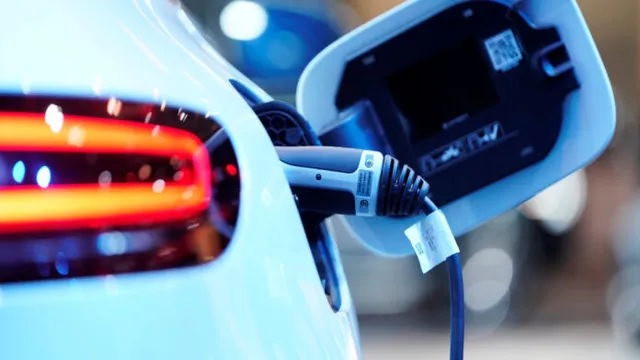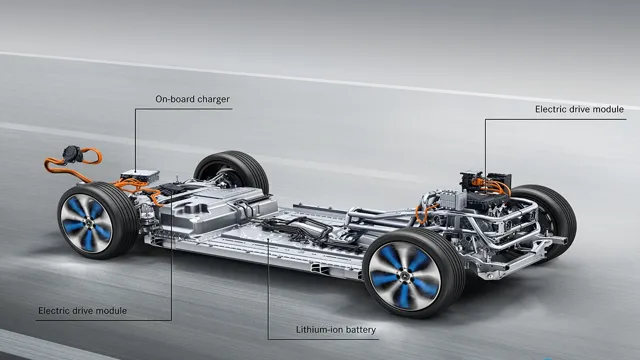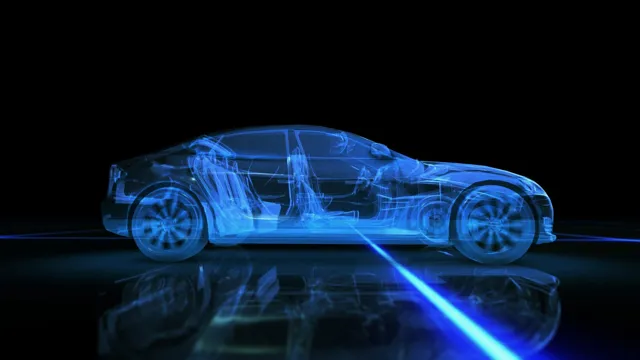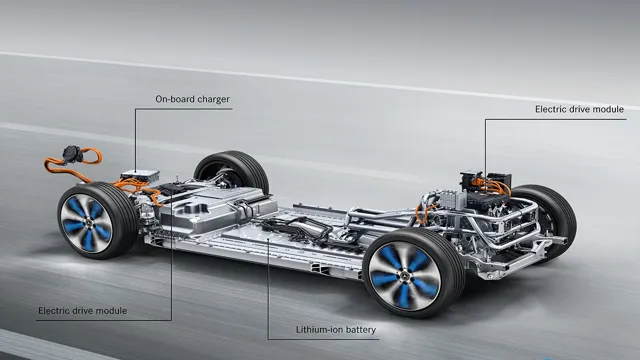Revolutionizing Home Energy: The Power of Electric Car Technology for Whole House Power Supply
Electric cars have been gaining popularity for years, offering drivers an eco-friendly and budget-friendly option for transportation. However, recently, electric cars have stepped up their game and are now offering homeowners a clean energy solution that could save them money on their energy bills. How, you may ask? By using the electric car to power the home! This innovative idea could be a game changer in the world of renewable energy, as it works to reduce our reliance on traditional power sources and instead utilizes the power within our own garages.
Imagine coming home from work, plugging in your electric vehicle, and when you wake up the next morning, your car has also powered your home overnight. It’s a concept that seems almost too good to be true, yet it’s very much a reality. The future of clean energy certainly looks bright with electric cars powering homes leading the way.
How it Works
Have you ever thought about powering your entire home with your electric car? Well, it turns out that the technology already exists to make this a reality. By using what is called a Vehicle-to-Home (V2H) system, the battery of your electric car is capable of serving as a backup power source for your home. In the event of a power outage, your car’s battery can provide power to your house until the grid is restored.
This technology is not only useful in emergency situations, but it also allows for greater energy independence and flexibility. By utilizing your car’s battery as a power source for your home, you can reduce your reliance on the grid and take control of your own energy generation. This is just one example of how electric car technology is revolutionizing the way we think about energy usage and distribution.
With the increasing popularity of electric vehicles, it is likely that we will see even more innovative applications of this technology in the future.
Homes as Batteries
Homes as Batteries: How it Works One promising technology that’s revolutionizing the way we consume and store energy is turning houses into batteries. By installing solar panels on the roof and a battery pack inside the house, homeowners can generate their own electricity from sunlight and store the excess for later use, effectively turning their homes into mini power plants. During the day when the sun is shining, the solar panels produce more energy than what is needed to power the house.
The excess energy is stored in the battery pack, which can power the house at night or during times when the sun isn’t shining. By using this technology, homeowners can reduce their reliance on the grid and even sell back excess energy to their utility company. The benefits of this technology are clear: it reduces carbon emissions, reduces dependence on fossil fuels, and saves homeowners money in the long run.
While some may be hesitant to make the initial investment, the overall savings and positive impact on the environment make it a technology worth considering.
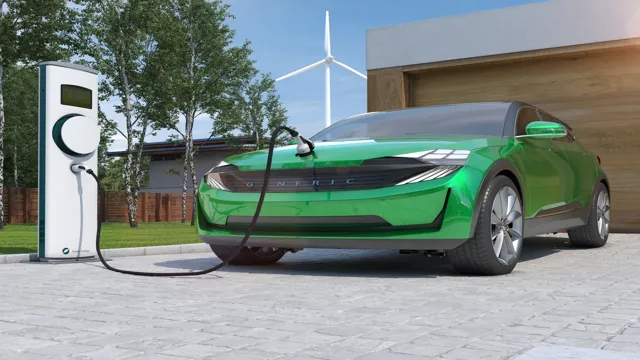
Solar Panels Powering the Grid
Solar panels are a fantastic way to generate renewable energy and help power the electrical grid. Essentially, solar panels work by converting sunlight into electricity that can be used to power homes, businesses, and even entire cities. The process begins with the panels themselves, which are made up of multiple photovoltaic cells.
When sunlight hits these cells, they create an electric current that is then captured and sent through an inverter that converts it from DC to AC electricity. From here, the energy can be used to power everything from a single home to entire neighborhoods. One of the biggest benefits of solar power is that it’s a clean and renewable source of energy that doesn’t produce harmful pollutants or contribute to climate change.
Whether you’re looking to reduce your carbon footprint or simply save money on your energy bill, solar panels are a great investment that can make a big difference in your life.
Cost Savings
Thanks to advancements in electric car technology, homeowners can now use their electric vehicles to power their entire home, resulting in significant cost savings. By plugging in their electric car to a home charging station when the car is not in use, the energy stored in the car’s battery can be used to power household appliances and even provide electricity during power outages. This technology, called vehicle-to-home (V2H), is becoming increasingly popular among environmentally conscious homeowners who want to reduce their carbon footprint and save money on their energy bills.
Not only does it provide a sustainable solution for powering homes, but it also strengthens the resiliency of the energy grid by providing backup power during emergencies. As electric car technology continues to evolve, so too will the ways in which it can be used to improve the lives of homeowners.
Reducing Your Electric Bill
Are you tired of receiving high electric bills every month? Fortunately, there are numerous ways you can save money on your monthly utility bill. One tip for reducing your electric bill is to use energy-efficient appliances and devices. Old appliances often consume more energy than newer models.
For instance, older refrigerators tend to use more energy than their newer counterparts, which can save you money in the long run. Another way to cut costs is to replace your incandescent light bulbs with energy-efficient bulbs. These bulbs use less energy and last longer, cutting down on the frequency of bulb replacements.
Moreover, if you live in a warm climate, consider using ceiling fans instead of air conditioning. By using fans to circulate the air, you can reduce the need for cooling and ultimately lower your electric bill. Whether it’s by replacing old appliances or switching to energy-efficient light bulbs, there are many ways to save money on your electric bill and help the environment in the process.
Increased Resale Value
When it comes to purchasing a car, many of us focus on the upfront cost and forget to consider the long-term savings that come with it. However, investing in a quality, high-end vehicle may pay off in the long run when it comes time to resell it. Cars that have a brand reputation for being reliable and well-made, like Mercedes-Benz, tend to hold their value better than others.
This means that when it’s time to upgrade or sell, you’ll be able to get more money for your vehicle compared to another make and model. By investing in a Mercedes-Benz, you’re not only getting a top-of-the-line vehicle that will last you for years to come, but you’re also making a smart financial decision that will pay off in the long run. So, next time you’re considering a new car purchase, think about the long-term cost savings and increased resale value that a Mercedes-Benz can provide.
Tax Rebates and Incentives
Tax rebates and incentives can be a game-changer when it comes to saving money. For businesses, tax rebates can help offset the costs of investments in equipment, facilities, and research and development. In turn, this benefits both the business and the economy as a whole.
Additionally, incentives can encourage businesses to implement environmentally friendly practices, which not only saves money but also helps the planet. For individuals, tax rebates can provide a boost to their finances. Whether it’s for energy-efficient upgrades to their homes or for charitable donations, tax rebates can help individuals keep more of their hard-earned money.
It’s important to do research and stay informed about available tax rebates and incentives to take advantage of these opportunities. By doing so, you can minimize your tax liability and maximize your cost savings, ultimately providing a positive impact on your overall financial health.
Environmental Benefits
Electric car technology has been a game-changer in reducing our carbon footprint and contributing to environmental conservation. Not only does electric car technology power vehicles, but it can also power an entire home. With a home charging station, electric car batteries can transfer their stored energy to the electrical grid or a home’s electrical system, making it possible for homes to be powered by the same battery that charges an electric car.
This technology has significant environmental benefits as it reduces the reliance on non-renewable energy sources and decreases the overall carbon emissions. Additionally, electric car batteries have a lifespan of up to 10 years before they need to be replaced, meaning that they can be repurposed for home energy use before being recycled. This dual-use of electric car technology not only saves money but also promotes sustainability, making it an ideal investment for environmentally conscious individuals and families.
Zero Emissions Living
Zero emissions living has many environmental benefits that make it an attractive option for those looking to reduce their carbon footprint. By eliminating the use of fossil fuels, zero emissions living can greatly reduce air and water pollution. This is because fossil fuels are one of the largest sources of greenhouse gas emissions, which contribute to climate change.
Additionally, zero emissions living can help to conserve natural resources, such as water and land, by using renewable energy sources that do not require as much space or resources to produce. This can help to preserve fragile ecosystems and protect wildlife habitats. By embracing zero emissions living, we can create a more sustainable future for ourselves and the planet, reducing our impact on the environment and helping to ensure a healthy and livable world for generations to come.
So, why not make the switch today?
Reducing Your Carbon Footprint
Reducing your carbon footprint is essential for the environment to thrive. With the increasing need for sustainable living and reducing greenhouse gas emissions, taking small steps towards a sustainable lifestyle can make a huge difference. Some benefits of reducing your carbon footprint include improved air quality, reduced pollution, and a healthier ecosystem.
By consuming locally-produced foods and using public transport, you are reducing the demand for non-renewable energy, hence reducing your carbon footprint. Making conscious choices like using reusable bags or choosing to walk instead of drive are simple yet effective ways of reducing your carbon footprint. Even small changes like turning off lights and electronic appliances when not in use, and fixing leaks can make a significant impact.
By reducing your carbon footprint, you are taking a step towards a more sustainable future and preserving the planet for future generations.
Future of Clean Energy
Electric car technology has revolutionized the way we think about energy consumption, and it’s only going to get better. With advancements in battery technology, electric cars can now power an entire home even when the grid goes down. Imagine never having to worry about a power outage again.
With just a few solar panels and a home battery system, you can power your home with the same technology that propels your car forward. Not only is this a more sustainable way to live, but it’s also more cost-effective in the long run. As electric cars become more prevalent, we can expect more and more homeowners to take advantage of this technology to power their homes and reduce their carbon footprint.
The future of clean energy is bright, and electric car technology is leading the way.
Conclusion
In the world of electric cars, the power to charge up your vehicle can now do so much more. With the emerging technology of using an electric car to power an entire home, it’s clear that the potential of these eco-friendly cars is truly electrifying. No longer are they simply a mode of transportation, but they hold the power to revolutionize our energy consumption habits and make our homes and lifestyles more sustainable.
So, the next time someone asks why you drive an electric car, just tell them you’re not just powering your ride, you’re also powering your life.”
FAQs
What is electric car technology?
Electric car technology is the development and use of electric cars, which run on electric motors powered by rechargeable battery packs.
How can electric car technology power an entire home?
Electric car technology can help power an entire home by using the battery pack of an electric car to store energy generated from renewable energy sources such as solar panels or wind turbines. This energy can then be used to power the home during times when the energy demand is high.
Are there any advantages to using electric car technology to power a home?
Yes, using electric car technology to power a home has several advantages. It can save money on energy bills, reduce dependence on fossil fuels, and decrease the carbon footprint of the home.
Can electric car technology be used in conjunction with other renewable energy sources?
Yes, electric car technology can be combined with other renewable energy sources such as solar panels or wind turbines to provide a more sustainable and reliable source of energy for a home.

